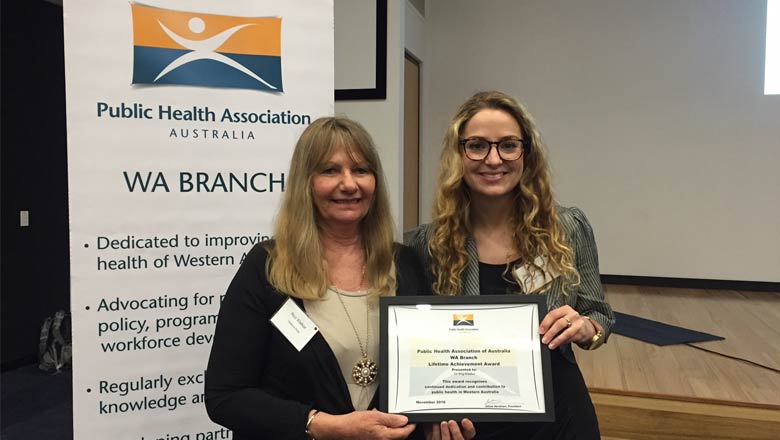Search
Research
A qualitative exploration of motivations and barriers for community leisure organisations’ engagement with the Jooay™ mobile appParticipation in leisure activities is key to the physical and mental health of children and adolescents with disabilities. The Jooay™ mobile app aims to link children and adolescents with disability to participation opportunities in their community.
Research
Building the Future Therapies for Down Syndrome: The Third International Conference of the T21 Research SocietyResearch focused on Down syndrome has increased in the last several years to advance understanding of the consequences of trisomy 21 (T21) on molecular and cellular processes and, ultimately, on individuals with Down syndrome. The Trisomy 21 Research Society (T21RS) is the premier scientific organization for researchers and clinicians studying Down syndrome.

News & Events
The Kids researchers honoured at Public Health Association AwardsTwo The Kids researchers working to improve the health & wellbeing of Aboriginal children & their families have both been honoured at the PHAA Awards.
Research
Priority setting for children and young people with chronic conditions and disabilitiesThe aim of this project was to identify the top 10 priorities for childhood chronic conditions and disability (CCD) research from the perspectives of children and young people with lived experience, their parents and caregivers and the professionals who work with them.
Research
Genotype and sleep independently predict mental health in Rett syndrome: An observational studyRett syndrome is a genetically caused neurodevelopmental disorder associated with severe impairments and complex comorbidities. This study examined predictors of anxiety and depression in Rett syndrome, including genotype.
Research
A Co-Designed Online Education Resource on Gastrostomy Feeding for Parents and Caregivers to Support Clinical CareChildren with complex needs and severe disability may undergo gastrostomy insertion to support feeding difficulties. Parent education programs are critical components of clinical care pathways but there is little information on parent-reported educational needs. This study describes the collaborative process that yielded a resource to assist parents considering gastrostomy tube placement for their children, and the evaluation of the resource.
Research
CRISPR-Cas9-generated PTCHD1 2489T>G stem cells recapitulate patient phenotype when undergoing neural inductionAn estimated 3.5%-5.9% of the global population live with rare diseases, and approximately 80% of these diseases have a genetic cause. Rare genetic diseases are difficult to diagnose, with some affected individuals experiencing diagnostic delays of 5-30 years. Next-generation sequencing has improved clinical diagnostic rates to 33%-48%. In a majority of cases, novel variants potentially causing the disease are discovered.
Research
The development, content and response process validation of a caregiver-reported severity measure for CDKL5 deficiency disorderCDKL5 Deficiency Disorder (CDD) is a severe X-linked developmental and epileptic encephalopathy. Existing developmental outcome measures have floor effects and cannot capture incremental changes in symptoms. We modified the caregiver portion of a CDD clinical severity assessment (CCSA) and assessed content and response-process validity.
Research
Cerebral palsy: EpidemiologyCerebral palsy (CP) is a lifelong physical disability, resulting from maldevelopment or damage to the developing brain. All children with CP have a disorder of movement and posture, but this is often accompanied by disorders of intellect, sensation, behaviour and epilepsy. Long-standing CP registers and surveillance systems estimate the prevalence of CP as approximately 2 per 1000 live births; however variations are seen over time and in different regions of the world.
Research
Implementation of an Early Communication Intervention for Young Children with Cerebral Palsy Using Single-Subject Research DesignThe implementation of an intervention protocol aimed at increasing vocal complexity in three pre-linguistic children with cerebral palsy (two males, starting age 15 months, and one female, starting age 16 months) was evaluated utilising a repeated ABA case series design. The study progressed until the children were 36 months of age. Weekly probes with trained and untrained items were administered across each of three intervention blocks.
